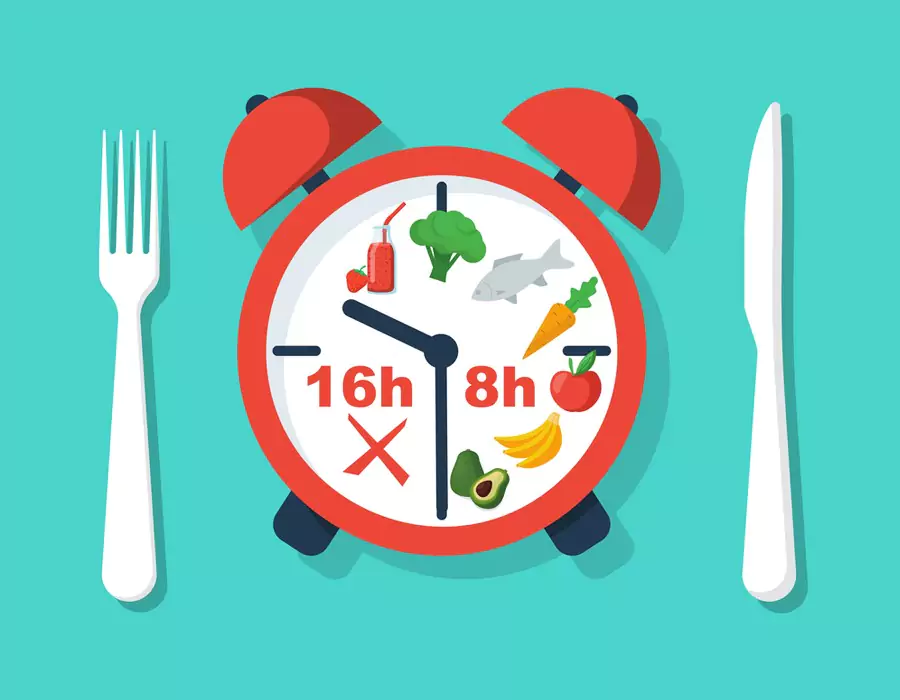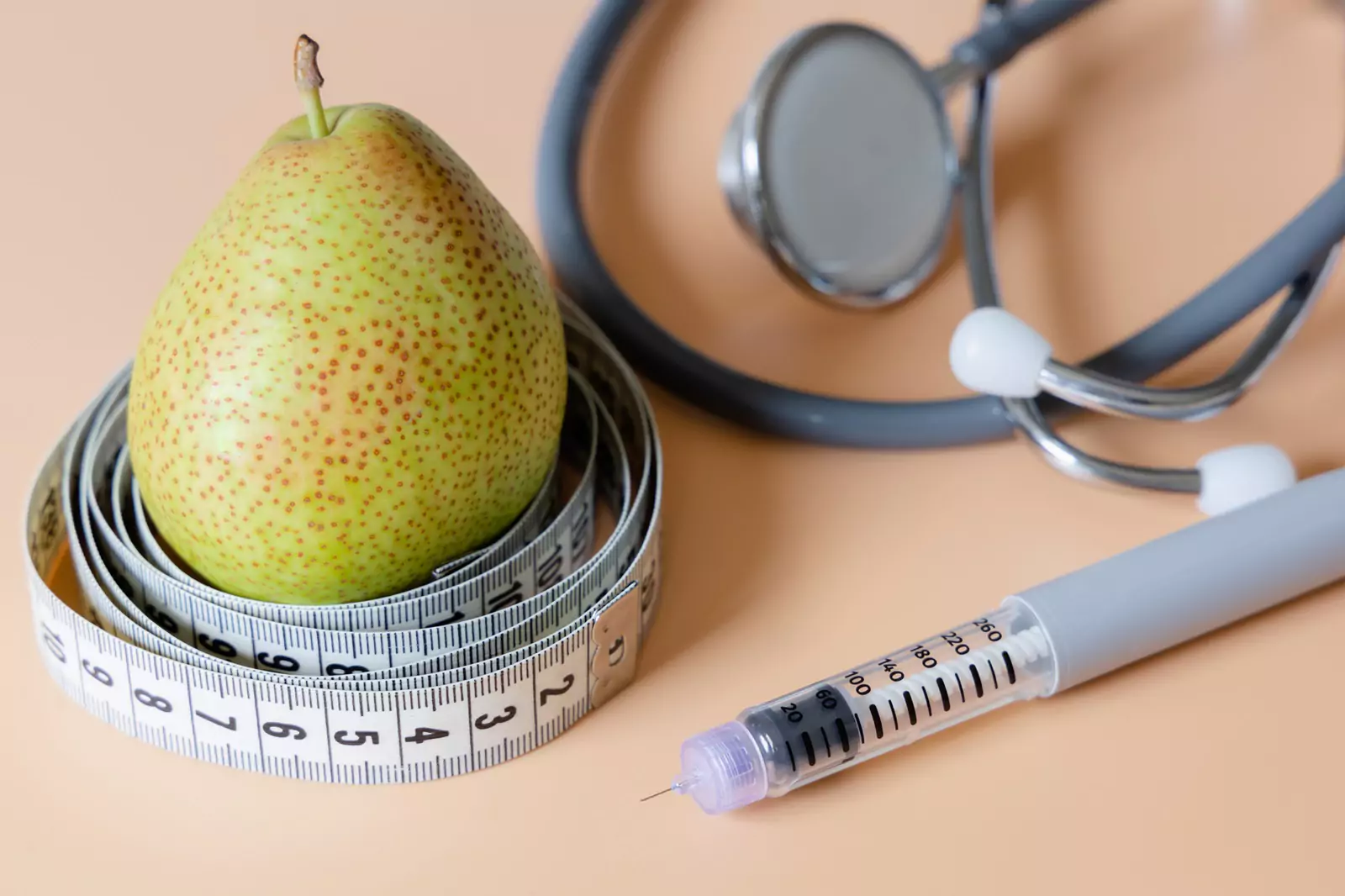
UP TO 40% OFF SITEWIDE






Questions to Ask Before Starting Intermittent Fasting


Table of Contents
- Type 2 Diabetes and Intermittent Fasting: Questions to Consider Before You Begin
- Let's start with the advantages of IF:
- What are the potential risks of intermittent fasting?
- During an intermittent fast, how much carbohydrate should you consume per day?
- Diabetics should practice some form of intermittent fasting, but which type?
Type 2 Diabetes and Intermittent Fasting: Questions to Consider Before You Begin
Today, we'll discuss the benefits of IF for people with diabetes. As a person with type 2 diabetes, you should ask yourself these questions before beginning an intermittent fasting regimen.
What we'll discuss is:
What are the advantages of fasting for a period of time?
If you're taking insulin or sulfonylureas such as glipizide, glyburide, glimepiride, or meglitinides like repaglinide or nateglinide, or SGLT-2 inhibitors like Jardiance or Farxiga.
What are the risks of intermittent fasting?
On an intermittent fasting day, how much carbohydrate should you eat?
With diabetes, what kind of intermittent fasting should you use?
I'm here to help you understand intermittent fasting so you can keep your diabetes under control while having a good time doing it. Before I begin, I'd like to invite you to share your thoughts on the subject in the comments section so that we can all benefit from each other's insights.
Let's start with the advantages of IF:
Intermittent fasting lowers insulin levels, which is the first benefit. Reduced insulin levels aid fat burning and weight loss by reducing caloric intake. Not only will your insulin sensitivity improve, but so will your medications and nutritional supplements as well.
Because of the changes in insulin levels, intermittent fasting has been shown to benefit conditions such as diabetes, high cholesterol, and high blood pressure. To a certain extent, insulin influences blood pressure and cholesterol levels.
The better one's blood pressure and cholesterol, the lower one's insulin levels must be. My audience knows that insulin resistance causes inflammation by increasing C-reactive protein, decreasing the good fat hormone adiponectin, and shrinking LDL particle size ( low particle LDL is more dangerous than the large particle LDL).
All of these factors increase the risk of heart attacks and strokes, which is why reducing insulin resistance is so important. Also, because insulin causes water retention, if you already have heart failure or simply leg swelling, you're hoping to get some relief from this condition as well.
You'll see an increase in your levels of the hormone human growth hormone (HGH). What's so critical about human growth hormone? High levels of growth hormone aid in the burning of fat and the building of muscle, among other things.
However, unless you have a deficiency in growth hormone and are under the supervision of an endocrinologist, trying to take growth hormone as medicine may have significant side effects.
Fasting for short periods of time is effective in resolving health problems. It's critical for cellular repair. Oxidative damage that occurs during the energy production process necessitates cell repair. Unfortunately, the fixing process does not take place when the body is occupied trying to digest food. What else is there to say?
Yes! Most of you have probably heard of the concept of autophagy. Autophagy is a medical term that means "self-eating." Autophagy is a built-in body mechanism. As a result, cells in our body have to get rid of unnecessary or damaged parts. The autophagy process aids in the maintenance of normal cellular function, also known as homeostasis.
The process of autophagy, which sounds like self-destruction, actually aids in the cleaning of the cells' interior and rejuvenates them. Autophagy can either destroy or recycle damaged molecules into new components that can be used to repair cells.
When cells are under stress, such as when they are starving or fasting, autophagy can help them survive by supplying them with energy from recycled cellular material. Additionally, autophagy aids the immune system by removing pathogens and toxins.
Gene expression can be improved, which is benefit number four. Several genes and molecules linked to long life and disease prevention have undergone beneficial changes — For those on insulin or sucrose-lowering medications.
What are the potential risks of intermittent fasting?
Diabetes patients who are on any type of medication, such as insulin or sulfonylureas such as glimepiride, will see significant improvement in their sugar levels. The result could be dangerously low blood sugar levels if your insulin and/or oral sulfonylurea medications are not adjusted.
Getting patients to know how to change their insulin or sulfonylurea dosage is difficult because most aren't well-versed in the subject. If you are taking any of these medications, I recommend talking to your doctor about intermittent fasting before you give it a go.
There will be a difference in your insulin sensitivity between days when you are fasting and days when you are not, making things even more difficult.
You and your doctor can discuss whether or not you need to take less insulin on fasting days.
It's also important to keep in mind that even if your insulin or sulfonylurea intake has been adjusted during intermittent fasting, you may still need to check your blood sugar levels more frequently. On days when you are fasting, monitoring blood sugars twice to three times more frequently than average will be difficult. I believe freestyle libre and/or Dexcom will be helpful in this situation.
Discuss with your doctor whether or not it is okay not to take SGLT-2 inhibitors on the days you fast if you are taking Jardiance, Farxiga, Invokana, or any other of the like.
In addition, if patients are not aware of maintaining adequate protein intake on days when they are not fasting, we may be concerned about protein malnutrition during prolonged intermittent fasting. Vitamin and mineral deficiency, on the other hand, is possible.
You may need to take vitamin and mineral supplements to make up for any deficiencies if you've fasted frequently or for an extended period of time.
Contrary to popular belief, intermittent fasting can lead to weight gain because your hunger hormones and the hunger center in your brain go into overdrive when you are not eating. There's a warning there! If you're breaking your fast later in the evening, you'll want to make sure you don't overeat. I always advise people to make a meal plan and stick to it, both in terms of food and portion size.
Other dangers include dehydration-related problems. Even if you don't have low blood sugar, you may experience mild to severe symptoms such as dizziness and nausea as well as sleep disturbances, blackouts, falls, and migraine headaches.
Intermittent fasting's side effects will be amplified if you have a chronic disease like heart disease, lung disease, or kidney disease. To ease into intermittent fasting, start with a 6- to 8-hour fast and work your way up from there.
Having significant and severe problems with fasting will occur if you go from eating every three hours to not eating for up to 16 hours. If you suffer from any of the conditions listed above or are taking insulin, you should think twice before attempting intermittent fasting due to the risk of serious side effects.
Also, if you're a woman who's pregnant or breastfeeding, a young child, an elderly person, or a frail older person, I strongly advise against fasting. Medical immunosuppression is recommended for people with immunodeficiencies, including those who have had a solid organ transplant and are fasting.
During an intermittent fast, how much carbohydrate should you consume per day?
There is a reason why we advise against consuming more than 45-60 grams of carbs per meal for diabetics. If you eat a lot of carbs, even someone in good health may have trouble keeping their blood sugar levels within the normal range.
So, if you're not fasting, I recommend sticking to your normal meal carbohydrate intake. To help you stay satisfied longer during fasting days, I recommend including more healthy fats in your main dish, such as olive oil, avocado, and nuts in your salad. Keep it simple and eat only meat – such as beef, lamb, chicken, or even better, fish. Eggs are safe to eat in moderation as long as you don't overdo it.
Vegetables like broccoli, cauliflower, and cabbage are also important. You should eat these as well as other leafy greens such as spinach.
After a long day of fasting, you will be tempted by sweets like cookies and cakes. Dark chocolate or fresh fruit are better choices if that's the case.
Diabetics should practice some form of intermittent fasting, but which type?
There are methods of fasting such as 16/8 and 20/4, which call for a 16-hour fast followed by an 8-hour meal or a 20-hour fast followed by a 4-hour meal. Use a 5:2 or alternate day schedule, for example. However, where do you even start?
To begin with, it's best to take it slow when beginning something new. As a result, introduce yourself to time-restricted feeding, a type of intermittent fasting. What are the steps to accomplishing that? As an example, you can begin by eating only 12 hours a day, usually an overnight fast between 7 p.m. and 7 a.m.
With practice, you can reduce the feeding window to as little as 16 hours followed by an 8-hour feed or as long as 20 hours followed by a 4-hour feed. Because our schedules are subject to change, this gives you some daily flexibility in deciding when to consume calories.
To avoid surprises, plan ahead and carry out your plan while remaining flexible with regard to the exact start and end times of your fast. As a last resort, if you find that you are becoming dependent on restricted feeding, you may want to consult with a registered dietitian, who is readily available on our website sugarmds, or if your physician is available and well-versed in diabetes management to discuss the alternate day or periodic fasting.
Ahmet Ergin, MD, CDE
Endocrinologist
Written By Dr. Ahmet Ergin
466 total articles
Meet Dr. Ahmet Ergin, a highly skilled and dedicated endocrinologist with a passion for diabetes care. Dr. Ergin earned his medical degree with honors from Marmara University in Istanbul. He completed internal medicine residency and endocrinology fellowship at Cleveland Clinic. Dr. Ergin is board-certified in Internal Medicine, Endocrinology, Diabetes, and Metabolism due to his vast medical expertise. He's a certified diabetes educator, author of “The Ultimate Diabetes Book,” and founder of “the SugarMD YouTube channel.” Dr. Ergin offers exceptional diabetes care to his patients in Port Saint Lucie, FL, helping them manage effectively. For a closer look into his insights and experiences, connect with Dr. Ahmet Ergin on LinkedIn, Instagram, and YouTube.”
Disclaimer: These statements have not been evaluated by the Food and Drug Administration. Information on this website isn't intended to treat, cure or prevent any disease. Discuss with your doctor and do not self-treat.
Products















